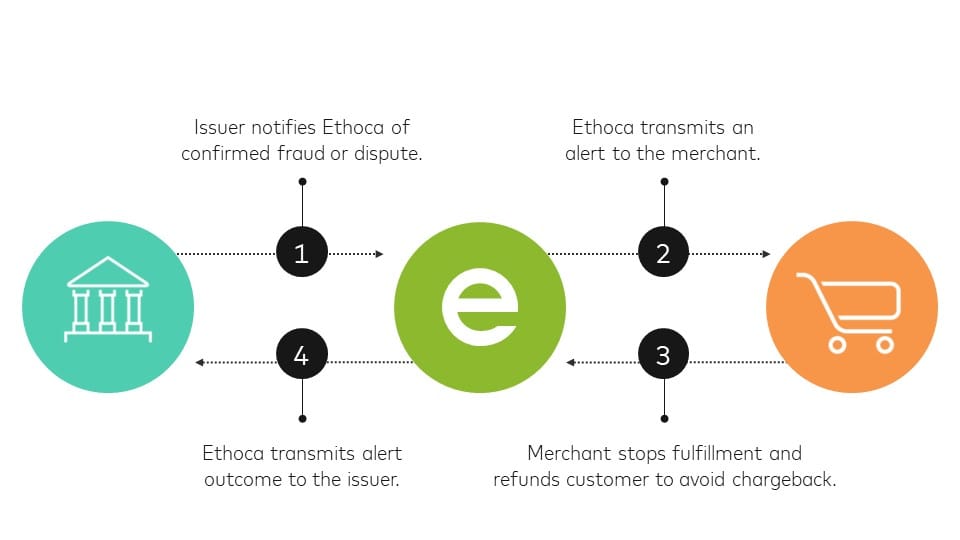
SuperPay helps accountants like yourself get paid as quickly as possible. Choose our platform to power your one-off and recurring billing.
In today's rapidly evolving business landscape, modern accountants face a unique set of challenges that require them to navigate through technological advancements, regulatory changes, and operational complexities. As businesses rely more heavily on technology and the global financial landscape becomes increasingly complex, accountants must stay ahead of the curve to deliver accurate and efficient financial services. In this blog post, we will explore the top challenges faced by modern accountants and discuss strategies to overcome them. From technological challenges to regulatory and compliance issues, as well as operational hurdles, we will delve into the key obstacles accountants encounter in their daily work. Additionally, we will also examine the future challenges accountants must prepare for as automation, artificial intelligence, and the demand for transparency continue to reshape the accounting profession. So, grab a cup of coffee and join us as we explore the challenges faced by modern accountants and how they can stay ahead in a rapidly changing industry.
Understanding the Modern Accounting Landscape
The accounting landscape has undergone significant changes in recent years, driven by advancements in technology, globalization, and evolving business practices. To effectively tackle the challenges faced by modern accountants, it is crucial to have a comprehensive understanding of the current accounting landscape. In this section, we will explore the key aspects that define the modern accounting landscape and shape the challenges accountants encounter.
Digital Transformation: The advent of digital technology has revolutionized the accounting profession. From cloud-based accounting software to automation tools, accountants are expected to leverage technology to streamline processes, enhance accuracy, and improve efficiency.
Globalization and International Business: With businesses operating on a global scale, accountants must navigate international accounting standards, taxation systems, and currency fluctuations. The ability to interpret and comply with global accounting regulations is essential in today's interconnected world.
Data Analytics and Business Intelligence: The rise of big data and analytics has transformed the role of accountants. They are now expected to analyze vast amounts of financial data, identify trends, and provide valuable insights to support strategic decision-making.
Changing Role of Accountants: Modern accountants are no longer limited to number-crunching tasks. They are increasingly viewed as strategic advisors who provide financial guidance and contribute to business growth. Accountants need to develop a broader skill set, including communication, critical thinking, and problem-solving abilities.
Increased Focus on Sustainability and Corporate Social Responsibility: As businesses strive for sustainable practices and ethical behavior, accountants play a crucial role in assessing and reporting on environmental, social, and governance (ESG) factors. They must understand the impact of sustainability initiatives on financial reporting and communicate this information effectively.
Collaboration and Teamwork: In today's interconnected business environment, accountants often work as part of cross-functional teams. Effective collaboration with colleagues in different departments, such as finance, operations, and IT, is essential for accurate financial reporting and decision-making.
Understanding the modern accounting landscape provides a foundation for addressing the challenges faced by accountants. By recognizing the impact of technology, globalization, data analytics, evolving roles, sustainability, and collaboration, accountants can better navigate the complexities of their profession and deliver value-added services to their clients or organizations. In the following sections, we will delve deeper into the specific challenges arising from these aspects of the modern accounting landscape and explore strategies to overcome them.
Technological Challenges in Modern Accounting
In the digital age, technology has become an integral part of the accounting profession. While it brings numerous benefits, it also presents unique challenges for modern accountants. In this section, we will explore the technological challenges faced by accountants and discuss strategies to overcome them.
Adapting to New Accounting Software: The rapid pace of technological advancements means that new accounting software and tools are constantly entering the market. Accountants must adapt to these changes, learn new software systems, and ensure seamless integration with existing processes. This requires continuous learning and professional development to stay up-to-date with the latest accounting technologies.
Cybersecurity Threats: As accounting processes move online and sensitive financial data is stored digitally, the risk of cybersecurity threats increases. Accountants must be vigilant in safeguarding financial information, implementing robust security measures, and staying informed about the latest cybersecurity practices. This includes protecting against data breaches, phishing attacks, and malware that can compromise financial data.
Keeping Up with Technological Advancements: Technology continues to evolve at a rapid pace, and accountants must keep up with these advancements to remain competitive. This includes understanding emerging technologies such as artificial intelligence, machine learning, robotic process automation, and blockchain. Accountants need to identify opportunities to leverage these technologies to improve efficiency, accuracy, and decision-making in their accounting processes.
Data Management and Integration: With the increasing volume of financial data generated, accountants must effectively manage and integrate data from various sources. This involves ensuring data accuracy, consistency, and compatibility across different systems. Accountants need to develop data management strategies and utilize tools that facilitate data integration and analysis.
Workflow Automation: Automation of routine accounting tasks can significantly enhance efficiency and productivity. However, it also poses challenges in terms of implementation and adapting to new workflows. Accountants must identify processes suitable for automation, select appropriate software or tools, and ensure effective integration with existing systems. Additionally, they need to acquire the necessary skills to manage automated processes and oversee exceptions or errors that may arise.
By proactively addressing these technological challenges, accountants can harness the power of technology to their advantage. Embracing new accounting software, prioritizing cybersecurity measures, staying updated on technological advancements, effectively managing data, and leveraging workflow automation can help accountants streamline their processes, improve accuracy, and enhance their overall productivity. In the next section, we will explore the regulatory and compliance challenges faced by modern accountants.

Regulatory and Compliance Challenges
In the field of accounting, regulatory and compliance requirements play a critical role in ensuring transparency, accuracy, and accountability. However, the ever-changing regulatory landscape presents significant challenges for modern accountants. In this section, we will delve into the regulatory and compliance challenges faced by accountants and discuss strategies to navigate through them successfully.
Staying Updated with Changing Regulations: Keeping pace with constantly evolving regulations can be a daunting task for accountants. Changes in tax laws, financial reporting standards, and industry-specific regulations require accountants to stay updated and ensure compliance. This involves continuous professional development, attending relevant training programs, and actively monitoring regulatory updates from regulatory bodies and government agencies.
Ensuring Compliance with Financial Reporting Standards: Financial reporting standards, such as Generally Accepted Accounting Principles (GAAP) or International Financial Reporting Standards (IFRS), are essential for accurate and transparent financial reporting. Accountants must understand and apply these standards correctly, ensuring the proper recognition, measurement, and disclosure of financial information. Failure to comply with reporting standards can lead to legal and reputational consequences.
Dealing with International Accounting Standards: As businesses expand globally, accountants often face the challenge of dealing with international accounting standards. Different countries have their own accounting frameworks and reporting requirements, such as the US Generally Accepted Accounting Principles (US GAAP) and the IFRS. Accountants must possess knowledge of these standards and adapt financial statements to meet the requirements of different jurisdictions.
Ensuring Ethical Conduct and Professional Responsibility: Accountants are entrusted with handling sensitive financial information and must adhere to ethical standards and codes of professional conduct. Upholding integrity, confidentiality, and objectivity is essential in maintaining public trust. Accountants must navigate ethical dilemmas and make sound judgments when faced with conflicting interests or unethical practices.
Managing Compliance Risk: Non-compliance with regulations can lead to severe consequences, including financial penalties, legal actions, and reputational damage. Accountants must develop robust internal controls, risk management frameworks, and compliance programs to mitigate compliance risks effectively. This involves implementing monitoring systems, conducting internal audits, and ensuring proper documentation and record-keeping.
Navigating through regulatory and compliance challenges requires accountants to proactively stay informed, adapt to changing regulations, and uphold ethical standards. By investing in professional development, leveraging technology to automate compliance processes, and establishing strong internal controls, accountants can effectively manage regulatory requirements while maintaining the highest levels of integrity and accuracy. In the next section, we will explore the operational challenges faced by modern accountants.
Operational Challenges in Modern Accounting
In addition to technological advancements and regulatory requirements, modern accountants also face a range of operational challenges that impact their day-to-day work. These challenges relate to workload management, talent retention, and implementing efficient accounting processes. In this section, we will explore the operational challenges faced by accountants and discuss strategies to overcome them.
Managing Workload Peaks and Valleys: Accountants often experience seasonal or cyclical peaks in their workload, such as during tax season or year-end financial reporting. Balancing the workload during these busy periods can be challenging, as accountants must meet deadlines and handle increased volumes of work. Proper workload management involves effective planning, prioritization, and possibly outsourcing or delegating tasks to ensure timely completion while maintaining accuracy and quality.
Retaining Skilled Accounting Professionals: The demand for qualified accountants is high, and retaining skilled professionals poses a significant challenge for accounting firms and organizations. Accountants may be attracted to other opportunities, such as higher salaries, career advancement prospects, or work-life balance. To overcome this challenge, firms need to focus on creating a positive work environment, providing opportunities for professional growth, offering competitive compensation packages, and recognizing and rewarding outstanding performance.
Implementing Efficient Accounting Processes: Inefficiencies in accounting processes can hinder productivity and accuracy. Accountants must identify bottlenecks, streamline workflows, and implement efficient systems and tools. This includes leveraging automation, standardizing processes, and utilizing project management techniques to enhance efficiency and reduce errors. Continuous process improvement and feedback loops are crucial for identifying areas of improvement and implementing changes accordingly.
Effective Communication and Collaboration: Accountants often work in teams, collaborating with colleagues, clients, and other stakeholders. Effective communication is essential for accurate financial reporting, resolving issues, and ensuring a smooth workflow. Accountants need to develop strong communication and interpersonal skills to effectively convey complex financial information, actively listen to clients' needs, and collaborate with team members.
Adapting to Remote Work and Virtual Collaboration: The recent global shift towards remote work has presented new challenges for accountants. Collaborating virtually, managing remote teams, and maintaining effective communication and coordination can be challenging. Accountants must adapt to new technologies, leverage virtual collaboration tools, and establish clear communication channels to overcome these challenges and ensure seamless remote work operations.
By addressing operational challenges, accountants can enhance their efficiency, productivity, and job satisfaction. Effective workload management, talent retention strategies, streamlined accounting processes, improved communication and collaboration, and adaptation to remote work environments are essential for success in the modern accounting profession. In the next section, we will explore the future challenges that accountants need to prepare for in a rapidly changing industry.
Future Challenges for Accountants
As the accounting profession continues to evolve, accountants face a new set of challenges driven by technological advancements, changing business models, and evolving client expectations. To stay ahead in a rapidly changing industry, accountants must anticipate and prepare for future challenges. In this section, we will explore the key challenges that lie ahead for accountants and discuss strategies to address them.
Preparing for Automation and Artificial Intelligence: Automation and artificial intelligence (AI) technologies are transforming the accounting landscape. Routine tasks, such as data entry and transaction processing, are increasingly being automated. Accountants must embrace these technologies and focus on developing skills that complement automation, such as data analysis, interpretation, and strategic decision-making. Continuous learning and upskilling will be crucial to adapt to the changing roles and responsibilities in an AI-driven environment.
Addressing the Growing Demand for Transparency: In an era of increased accountability and public scrutiny, there is a growing demand for transparency in financial reporting. Accountants are expected to provide accurate and comprehensive information that goes beyond traditional financial statements. They must be able to communicate complex financial data in a transparent and understandable manner, incorporating non-financial information, such as environmental and social impact, to meet the evolving needs of stakeholders.
Developing Soft Skills for the Changing Accounting Landscape: As technology automates routine tasks, the role of accountants is shifting towards providing strategic insights and advisory services. This requires the development of soft skills, such as critical thinking, problem-solving, communication, and leadership. Accountants must enhance their ability to analyze data, interpret trends, and communicate financial information effectively to guide business decision-making and provide valuable insights to clients.
Embracing Sustainability and ESG Reporting: With the increasing focus on sustainability and environmental, social, and governance (ESG) factors, accountants must adapt to the growing demand for ESG reporting. They need to understand the impact of sustainability initiatives on financial reporting, assess risks and opportunities associated with ESG factors, and develop frameworks for measuring and reporting on sustainability performance. Accountants must stay informed about evolving sustainability standards and integrate ESG considerations into their accounting practices.
Navigating Regulatory Changes and Complexities: Regulatory frameworks are constantly evolving, and accountants need to stay on top of changes to ensure compliance. This includes monitoring updates in tax laws, financial reporting standards, and industry-specific regulations. Accountants must proactively engage with regulatory bodies, participate in professional networks, and invest in continuous education to navigate the complex regulatory landscape effectively.
By embracing emerging technologies, developing soft skills, addressing the demand for transparency and sustainability, and staying abreast of regulatory changes, accountants can position themselves as trusted advisors in a changing industry. Continuous professional development, adaptability, and a proactive mindset will be essential to tackle the future challenges faced by accountants and thrive in the evolving accounting profession.
In Conclusion...
The challenges faced by modern accountants encompass various aspects of the profession, including technology, regulations, operations, and future trends. By understanding and proactively addressing these challenges, accountants can navigate through the complexities of their role and deliver high-quality financial services. Whether it is adapting to technological advancements, keeping up with regulatory changes, improving operational efficiency, or preparing for the future, accountants must stay agile, embrace innovation, and continuously develop their skills to excel in the modern accounting landscape.
Final Assessment
Discover the primary challenges modern accountants encounter in an era of technological advancement and evolving financial regulations. This insightful guide sheds light on the hurdles accountants navigate daily and provides strategies to overcome them, ensuring success in the ever-changing world of accounting.


